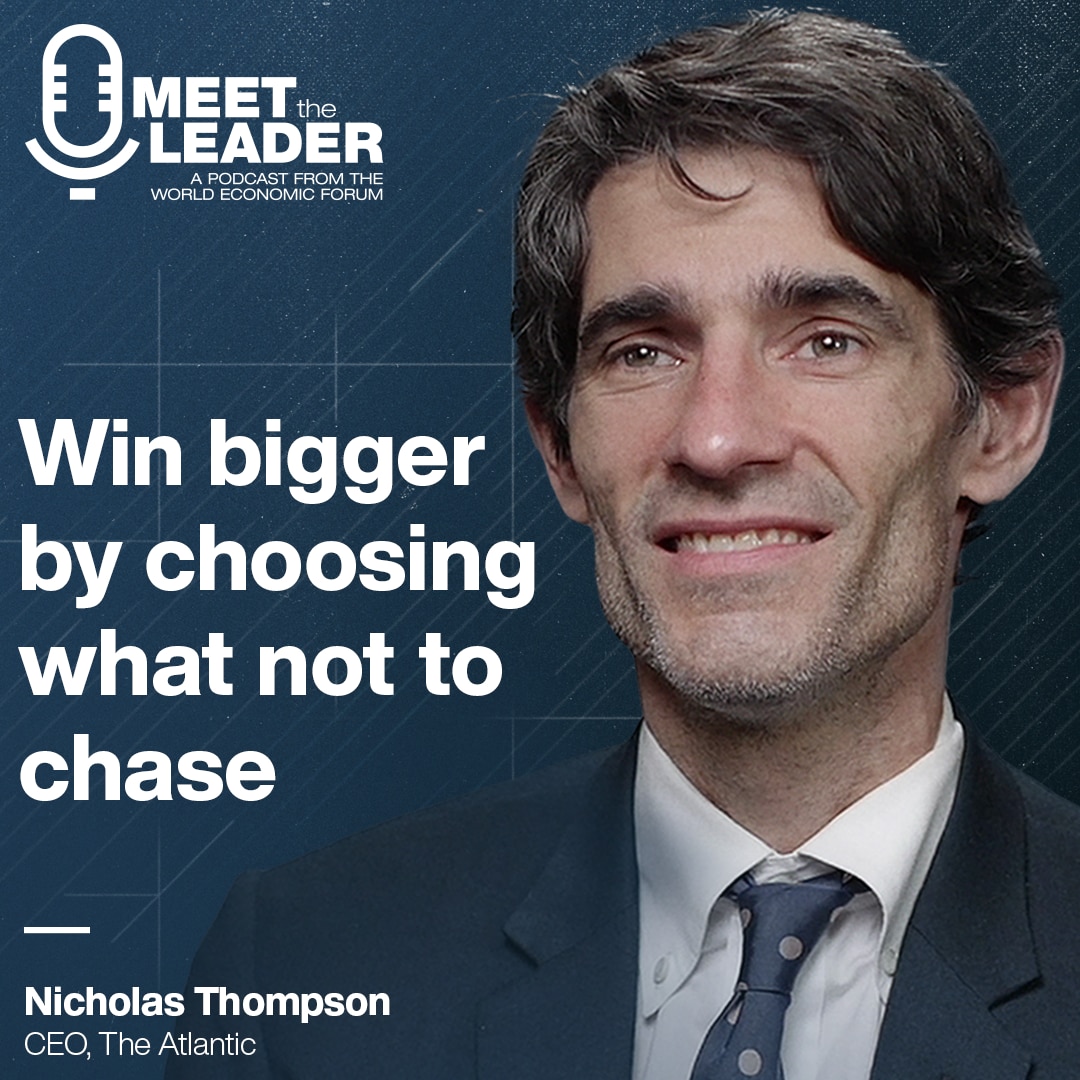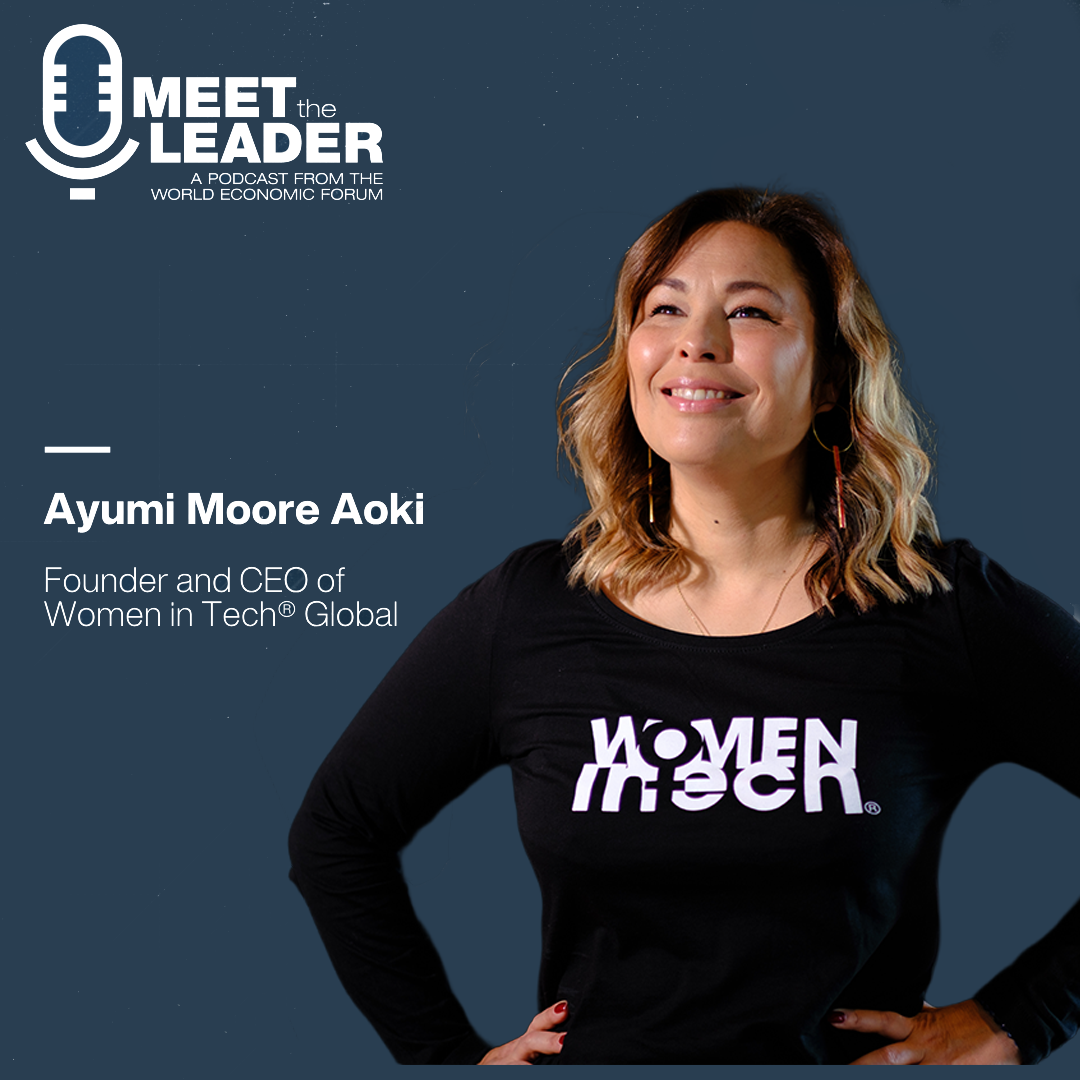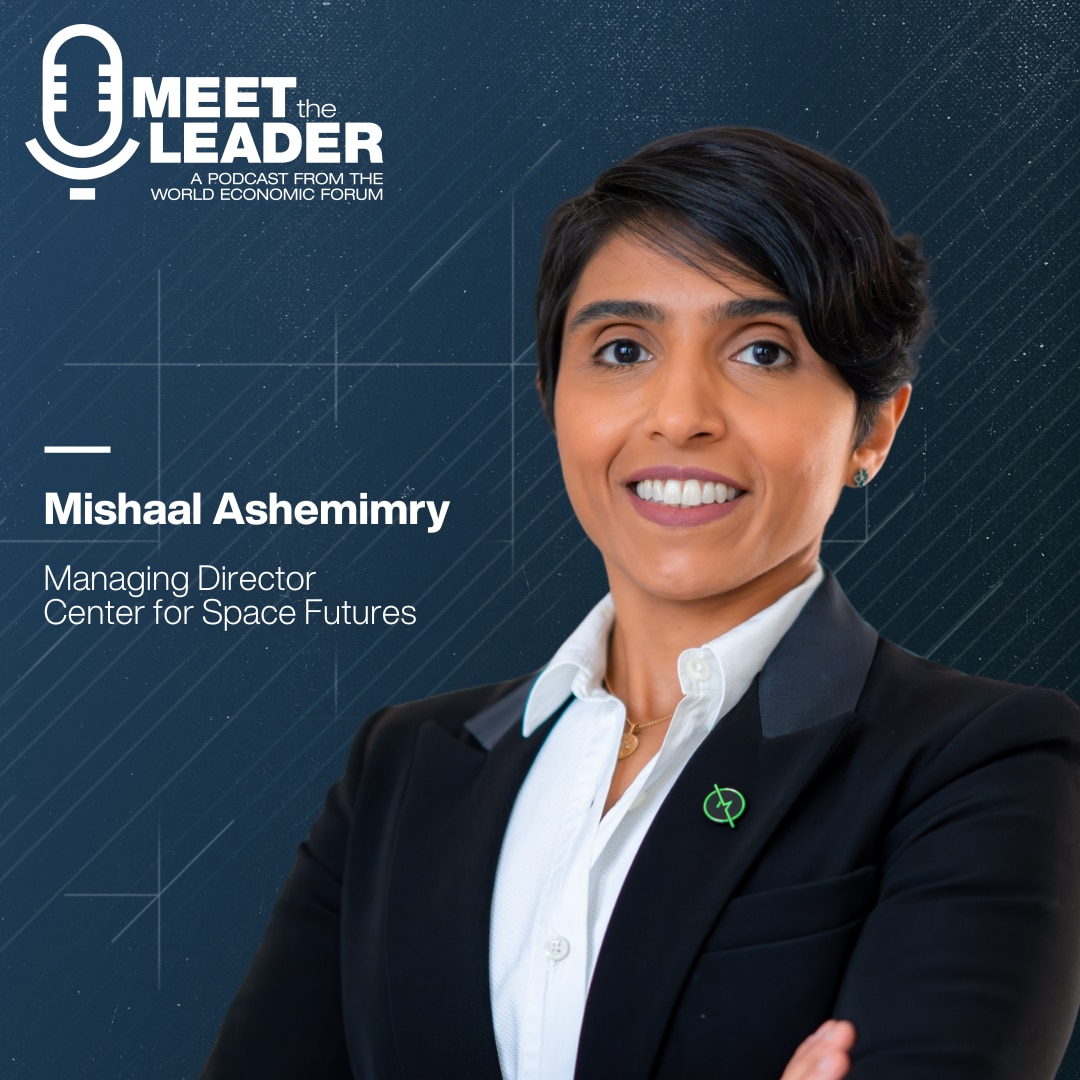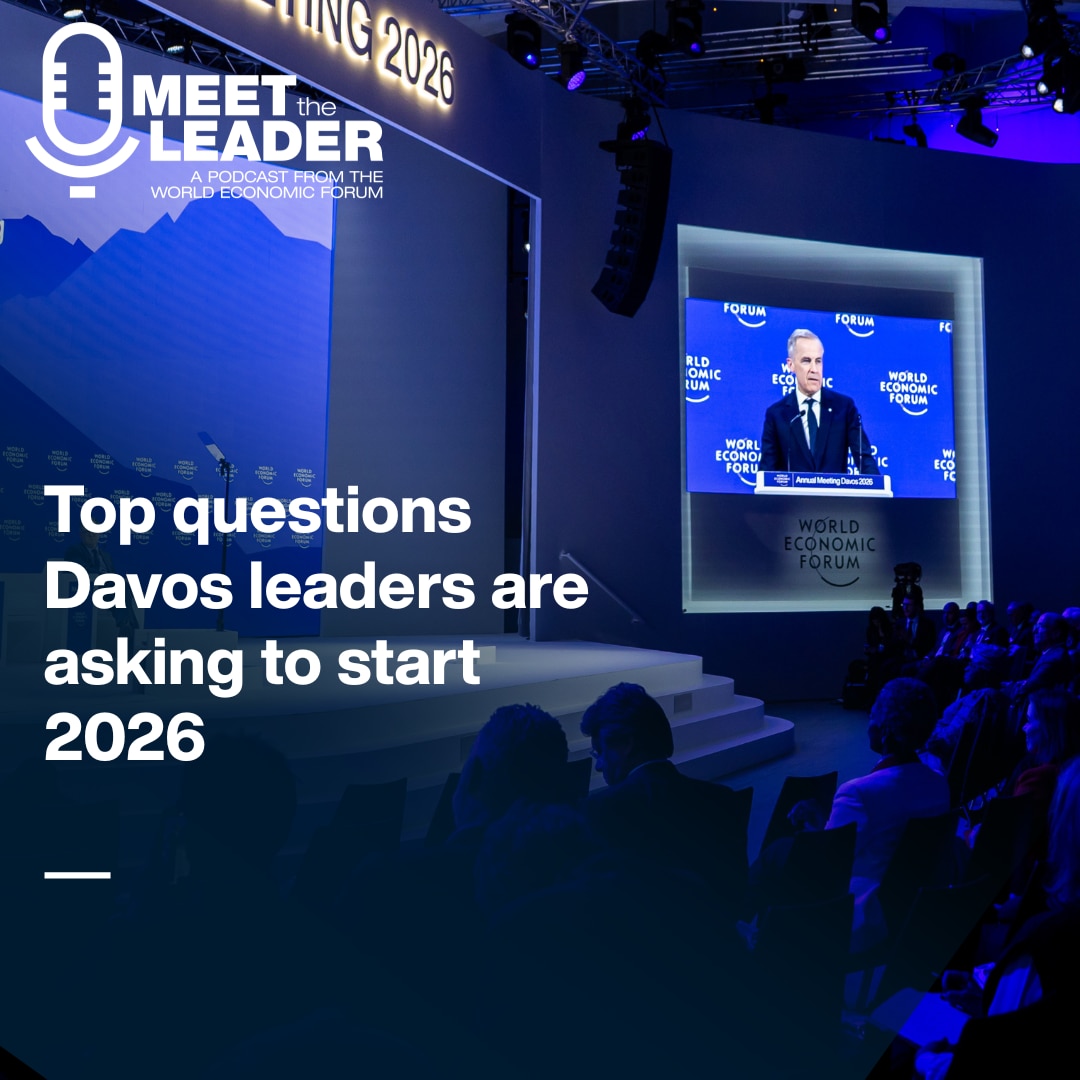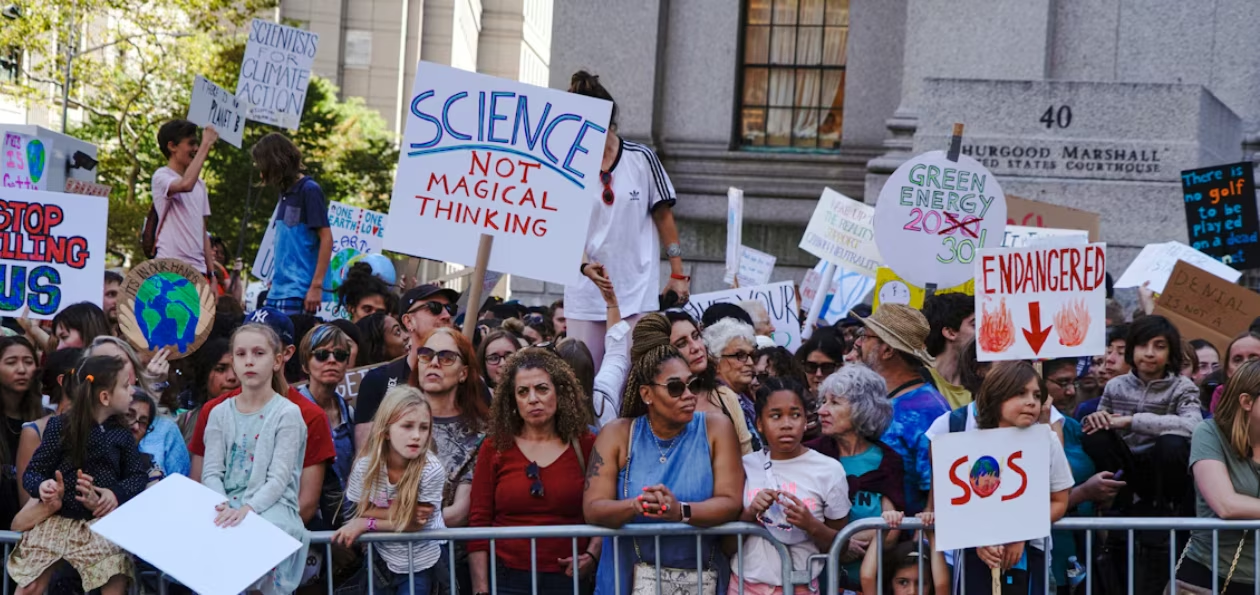PepsiCo's Ramon Laguarta: Practices that transform business
Transcripción del podcast
Meet The Leader / Linda Lacina Welcome to Meet the Leader, a podcast where top leaders share how they're tackling the world's toughest challenges. Today's leader, Ramon Laguarta. He's the chief executive officer of multinational food and beverage giant PepsiCo. He'll talk about what's really needed to transform business for the future.
Subscribe to meet the leader on Apple, Spotify, and wherever you get your favourite podcasts. And please take a moment to read and review us. I'm Linda Lacina from the World Economic Forum and this is Meet the Leader.
PepsiCo CEO Ramon Laguarta: I always think that with crises there're opportunities and companies that can transform crises into opportunities are the ones that thrive.
Meet The Leader / Linda Lacina What is really needed to scale change?
That question was at the heart of my conversation with Ramon Laguarta, the CEO of PepsiCo.
He is helping to drive a transformation that rethinks how the company does business, right down to a more sustainable alternative to the classic aluminium pop can.
We talk a lot on this podcast about the quick turns companies will need to make to work more sustainably to protect both planet and profits. Ramon chatted with me about the block and tackle of those efforts, how it involves partnerships that can de-risk investments, consumption models that can trigger and scale new habits, and the right mix of internal collaboration and competition to spur innovation.
He talked to me about these elements and how leaders can think intentionally to ensure that the short term nurtures the long, and the unique role that a company culture will play in change.
He talked about all that, including how he's changed as a leader in his more than 25 years at PepsiCo. But first, we'll get back to that aluminium can and packaging and what's needed to green hard-to-abate industries such as aluminium.
PepsiCo CEO Ramon Laguarta: As part of the broader transformation of the company. We're trying to change the packaging that we use and aluminium is an important material for us, especially in our beverage business.
So moving from, I would say, dirty aluminium to green clean aluminium, it's part of the transformation I want to make in the industry.
There is not enough green aluminium, So the role we're playing in this particular case is being First Movers, joining some other partners in giving demand signals to the manufacturers and making sure that they understand our needs and understand the scale of this potential opportunity so they can invest to develop a new material.
There is an incremental cost for these new materials. So I think we need a leader, we need companies that want to take a leadership position and take an additional cost to their PnL, because by scaling these materials, we know that 10 years from now those materials will be very similar in cost to the existing materials, whilst clearly having a very different impact in the world.
So that's the role we see ourselves playing in transformation of technologies or materials or business models that can make a big difference to the people and the planet in the future. But they have an early cost and we can help minimise those future costs by taking that leadership position today.
Meet The Leader / Linda Lacina: And PepsiCo is part of the First Movers Coalition which invests in innovations and things to make big changes like this. How important is it for companies, leaders, who want to make transformations to go be part of things that where they can easily connect with other like-minded business owners?
PepsiCo CEO Ramon Laguarta: I think the First Mover alliance that we have is it's one of the best examples that we have how WEF [World Economic Forum] has put together a group of leaders that we share the same values, we share the same long-term perspective in how our companies can evolve to continue to be successful and where we chose a few key materials that we think will be part of the future portfolio of solutions that we have.
And we've joined forces to give signals to these manufacturers, make sure we de-risk their investments because at the end that's what we're here for, de-risk investments on new or riskier propositions. And I think the you know, the early adopters Alliance is one of the the most critical ones we're doing. We're trying to bring even more players. So we will not only have to walk the talk at the beginning, but also recruit more players to these alliances. And I think we're in the process of that. Actually, we had a meeting today, and that was one of the messages. We want more people to join the alliance to put their business at risk, relative risk, you know, to make sure we scale up this new solution.
Meet The Leader / Linda Lacina: You mentioned packaging, and there's a few initiatives you guys have. One of them is looking at reusable packaging and reuse formats. There's a pilot program that's hoping to sort of test metrics. And that's connected to our Consumers Beyond Waste initiative anyway. Tell us a little bit about how why it's important to sort of test new ways to have reusable packaging.
PepsiCo CEO Ramon Laguarta: We have one mission, which is make sure that packaging never becomes waste.
Many players in the industry share the same vision, which is good for the industry itself. Now, as part of the solution set, there will be reduction in plastic. And so I think we're all trying to lightweight our bottles and eliminate unnecessary plastics and so on. So that's one pillar,
There is recycling. Recycling needs to be part of the solution, both in our case, mechanical recycling and chemical recycling. And there's a lot of debates on whether chemical recycling is part of the solution or not. We think it has to be both for flexible and for rigid packaging.
And then there's this, I think, more innovative way, which is reuse. Both taking, if you think about beverages, taking the more traditional way of bringing the bottles back to the original point, clean them and bring them back to the consumer. That's kind of the refillable returnable way.
And then the most exciting for me is new consumption models. New consumption models where we empower the consumer to create their own drinks in their home or in their workplace or somewhere else. And we give them solutions, both equipment and, you know, in our case concentrates or powders or tablets to prepare their own drinks.
Imagine Gatorade, for example. Gatorade, you know, very well known drink with high functionality for consumers. The future of Gatorade is a personalised solution. So every one of each one of us has different hydration needs, sodium, potassium combinations, whatever. Now we know what your needs are. We can prepare a special powders for you that you, you know, you put in a bottle with water in your own home.
So imagine: we're not only saving plastics. We're saving CO2, we're saving transportation costs or, you know, we're saving pollution by empowering consumers to create their own solutions.
We're also scaling up the SodaStream business. SodaStream is a solution where obviously you can create sparkling water. But you can create Pepsi, you can create other drinks right at home with your own levels of sweetening, with your own levels of carbonation or whatever.
So I'm very excited with each one of those solutions - recycling, reuse the more conventional way. But I'm very interested in legislation and incentives that kind of move companies to innovate in new consumption models.
And we don't know what there will be. I think we need to empower our people to come up with innovation, but they will surprise us. And I think we can solve for multiple problems: plastic, gas emissions, pollution, water usage. A lot of the things are converging into what is going to be the future consumption model.
Now measuring re-use and having the right legislation around it -- it is one of the discussions we're having now. And we want to make sure from our point of view (and I think most of the beverage industry is aligned), we want to make sure that legislation is not too narrow and that prevents innovation from happening. All right. So what are these new reuse models of the future versus trying to have accounting and measures that will just have us in the more traditional returnable bottle model -- which is was great. It will continue to be part of the solutions. But there's many more that we need to empower our companies to do.
Meet The Leader / Linda Lacina: When we talk about business transformation, we need to build new capabilities. We need to shift mindsets. We need to build awareness. For things like this new business model, this new consumption model, what needs to happen on the back end at PepsiCo to even invent it and then move it forward and then make the change of actually producing it? What needs to happen on the back end?
I need to make sure that the short term doesn't kill the long term.
”PepsiCo CEO Ramon Laguarta: There's a lot of things that need to happen right there. First, it has to be a group that believes in this and innovates around it. Now, what happens internally in the company, is normally that these new business models compete with the old business models. So you're going to have some healthy competition internally. So you had in my case, I have to make sure that there is collaboration, but at the same time, there is competition between different parts of the company to bring the new models forward. I need to make sure that the short term doesn't kill the long term.
So I have to ensure that there is enough funding protected for the new future models to have to scale up and become profitable. Normally there is a they tend to be lower profit models at the beginning and organisations, you know, we're our in our DNA here is, you know, making profitable businesses and that's how companies are run. So sometimes there could be a short-term mentality that kills the long term big idea. So the role of the leaders is ensure that there's enough funding, there's enough strategic understanding of the potential of new business models and that organisations don't kill big ideas, you know, early on in the journey. So these things have to happen.
Now we also have to work with our customers and make sure that those new business models get created. We need to work with our suppliers because they also have assets that are locked to traditional business models. There is an end-to-end transformation that needs to happen for new business models to be alive.
Now, in companies, we need to empower innovation. We need to reward risk taking. Those are transformational things. We need to make sure that we go from looking inside to learning to make trustable partnerships, you know, trusting our competitors sometimes to build new models. And there is a lot of conversations, pre-competitive conversations in a lot of industries trying to solve for big problems of the industry.
And we go together to governments and we go together to suppliers to try to have open conversations over what would be win-win ways to change current consumption models into the future and have the right incentives for the industry, build the right infrastructure, you know, things that would favour the whole industry and would allow industries to move forward so that those are new leadership traits. Sometimes these are new skills, soft skills and competence skills that we have to build in our organisations and our people.
Meet The Leader / Linda Lacina I'm going to ask you a question that you may not even be able to answer, but I'm just curious. For something like this, this new consumption model, how many people would be involved in the whole thing and the whole thing across the across the suppliers, your staff?
PepsiCo CEO Ramon Laguarta There's hundreds of people involved: From the consumer insights, our people are trying to understand consumers - what are the dissatisfactions with current models, which are normally the signal points for new innovations; To people in our R&D groups, that are normally the ones thinking about it. They already involve obviously suppliers, external suppliers and capacities. We don't have the capabilities. And then, obviously, once you land it into the business, the manufacturing, the sourcing, the the selling, these are these are big efforts.
So we need to transform organisations at scale for everything we're saying, right? Reuse models or recycling models or net zero transportation. Imagine some of the challenges we have as a company is we are one of the largest fleet in the US, but also in other countries, Mexico and others. Now, that's a big source of CO2 emissions for us. If we want to decarbonise PepsiCo, we need to change the way we do transportation. So, we have to engage our suppliers in new models.
And you heard about Tesla -- when it was like made the news. So, yes, we have been working with Tesla to have, you know, heavy trucks, long range vehicles. But we're also working with many other suppliers to solve for different problems in that same bigger vision to decarbonise our transportation. So again, a lot of engineers, a lot of visionary people, a lot of people that can take those visions into small details on how you find solutions, right? These are hard problems to solve that require conviction, require long-term thinking and require resilience because you fail many times and you have to keep trying.
It's very interesting from the leadership, from the commitment to a vision, how important it is that the leaders in the company --and I'm not talking myself, I'm talking all my team and many more top leaders in the company -- we believe in Pep+ which is our holistic transformation and just, you know, having the passion to deliver that vision is what I think will make us a successful company 20 years from now.
Meet The Leader / Linda Lacina: Is there a framework maybe that can help leaders to manage the long term while they're working in the day-to-day? Is there a question they should ask themselves or or some kind of thing to make sure that they're always factoring in the long term?
PepsiCo CEO Ramon Laguarta: There is obviously a mindset and there is a belief, as I was saying, conviction. But there are processes in our operating, planning. And so there has to be a process, very intentional, to protect long-term investments otherwise. So it has to come from me, the CFO.... whenever we do operating plans in the key markets, we say, 'okay, guys, what are the the today's investments and the tomorrow's investments and the future investment needs to be kind of isolated from the short-term dynamics.' Obviously, if there is a major disruption throughout the year, you need to rethink the operating plan. But also in those moments of a reallocation of resources, there is a mindset to say, 'okay, how do we manage the short term and how do we maybe reprioritize the long term, but without sacrificing the output? I find it is more a an art than a science.
How you do it -- you have to take people with you in the process. They need to understand how how it works. There might be some compensation implications in the process. So we need to sometimes protect compensation for leaders and make sure that they're not, you know, eliminating our success for the future for today's benefit. So those are things that process says in the reallocation. In moments when everything goes well, it's easy. When things get tough, how do you reallocate without sacrificing long term, and then compensation and overall culture of the company. I think it's important that that, you know, it is the culture enables the future as well.
Meet The Leader / Linda Lacina: Is there an experience that you had maybe at another point in your career that has helped prepare you to manage this transformation?
PepsiCo CEO Ramon Laguarta: I've always thought of myself as someone that wants to build solid foundations for the business of the future. And that has always been my my mentality from the first time I was a GM in Greece in 1998, I think.
How I think about my role is to build a stronger business than when I took it and leave it for the next leader, stronger than what it what it was. And I think always about people. So the leadership team of the markets I've always led, that's where I put my focus. What is this leadership team, the culture and how do we create this team that is visionary, is working together. There's levels, high levels of trust. So that's one element.
The other element has being has been the way I'm approaching it is big changes, too, big things that will make the business stronger, right? When I took the role of CEO at PepsiCo, it was first pivoting to growth making sure that company accelerated its growth. We took some risk with higher A&M levels, higher CAPEX levels. The company has been successful. We've been winning in the marketplace for the last four years. We've been accelerating our growth, our profit.
But then the other big element was, for me, again, building this long-term transformation of the company that will make the company successful five years, 10 years, 15 years. I will not be around in 10 or 15 years. But I want to make sure that both the leaders that come up to the leadership roles at that time have the culture, the team, the vision, and then that I started this transformation so that it will make their life easier to continue to perform and transform company in the right way. So that is, I think, the legacy I'd like to leave the purpose of my everyday life now.
Meet The Leader / Linda Lacina: Is there something that you do now as a leader that just wouldn't have occurred to you at the beginning of your career?
PepsiCo CEO Ramon Laguarta: As you become more...kind of mature, I would say? Let's put it that way, not older. You reflect on the importance of taking others with you and making them feel that they are the ones really making the difference versus earlier in your career. I guess we're more selfish and more insecure. And it's more about you trying to be the one that gets the winning, the victory. I think you become more generous, you become less selfish, you become more about the team and less about yourself. And, you know, and I think it's a much more sustainable way of running businesses. The how you, you know, it is your team that delivers the victory versus just one individual. And that has been a transformation.
Sometimes I feel in myself I was passionate, aggressive, trying to win sometimes at any cost. Now it's a much more balanced way of delivering the best for the company. You change over time and in my case, obviously it's been just time and experience. But also my own sons -- I have three sons and they're now in their late twenties. Going through teenage kids, it makes you realise there is a very different way to take people with you and influence people and they don't. I mean, I'm their father, right? I'm not, like, the CEO of PepsiCo. I'm just, you know, and it's a it's a very different way to influence people and take people along. And it makes you reflect.
Meet The Leader / Linda Lacina: There's a lot of crises simultaneously happening. The 'polycrisis' I'm sure you've heard term that so far at Davos. What should leaders be prioritising this year?
PepsiCo CEO Ramon Laguarta: You know, we keep putting the consumer at the centre of everything we're doing. I mean, I think the consumer has to be has to be telling us where to innovate, how to price, where to put the priorities of our company. So that's one element.
The second is our associates make sure that we put them at the centre as well. They've been through very tough times. I mean the COVID was massive impact to our people. Obviously now inflation and all these issues -- cost of living -- is impacting our people. We're seeing some mental health challenges across the company, not only our company. Other companies. Putting people at the centre, both consumers and our people. Make sure they're engaged, they're empowered, they they are happy and active when they come to the company, and working for PepsiCo is a sign of pride. It is critical.
Now when it comes to the business, I think we're going to have to put efficiency probably more at the centre than other years. We've always been a good at putting efficiency at the centre of our business, but I think efficiency and transformation probably will have to have more priority in these coming years. But I always think that with crisis is there opportunities and companies that can transform crisis into opportunities are the ones that thrive.
Meet The Leader / Linda Lacina That was Ramon Laguarta. Thanks to him and thanks so much to you for listening. A transcript of this episode and my colleagues' episodes. Radio Davos and the Book Club Podcast is available at wef.ch/podcasts.
If you liked that episode, check out episode 62 from late past November. It's a round up of seven leaders, including Egypt's Minister for International Cooperation, Rania Al-Mashat and Miami's Chief Heat Officer Jane Gilbert. They talk about what is needed to really tackle climate action.
This episode of Meet the Leader was presented and produced by me with Juan Toran as studio engineer, Taz Kelleher as editor and Gareth Nolan driving studio production.
That's it for now. I'm Linda Lacina with the World Economic Forum. Have a great day.
A more sustainable future means transforming how business is done. PepsiCo's CEO Ramon Laguarta shared how the food and beverage giant is rethinking things like packaging and consumption models - and how de-risking investments, scaling new habits and the right mix of internal collaboration and competition can spur innovation.
Subscribe on any platform: https://pod.link/1534915560.
Join the World Economic Forum Podcast Club.
Más episodios:
La Agenda Semanal
Una actualización semanal de los temas más importantes de la agenda global
Más sobre Naturaleza y BiodiversidadVer todo
Marc Benioff, Alexa Firmenich and Chavalit Frederick Tsao
12 de febrero de 2026
